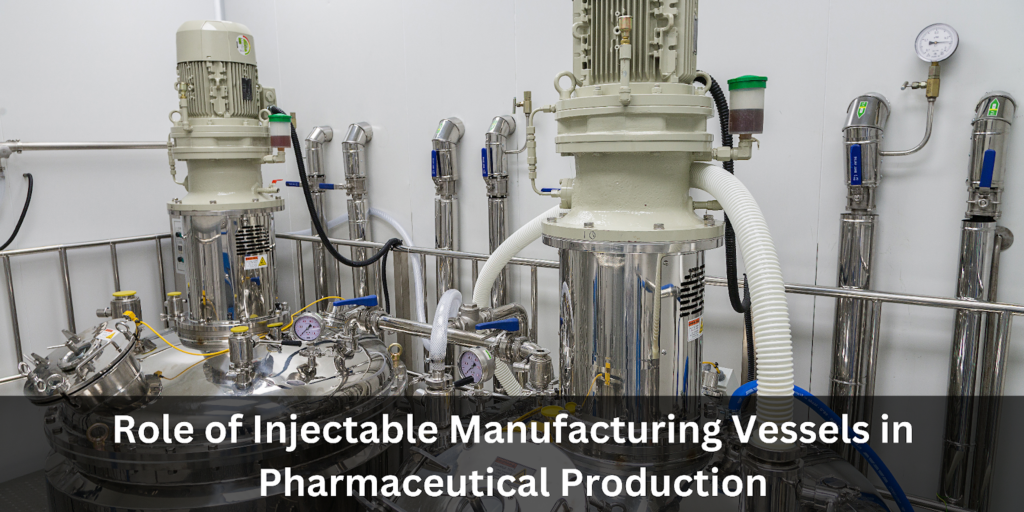In the world of pharmaceutical production, precision and quality are paramount. One of the key components in ensuring the safe and efficient manufacturing of injectable medicine is the use of specialized equipment known as injectable manufacturing vessels. These vessels play a crucial role in the pharmaceutical industry, ensuring that the medications we rely on are produced with the highest standards of safety and efficacy.
Understanding Injectable Manufacturing Vessels
What are Injectable Manufacturing Vessels?

These vessels are specialized containers designed for the production of injectable medicine, such as vaccines, antibiotics, and insulin. These vessels are engineered to meet the stringent requirements of the pharmaceutical industry, where even the slightest contamination can have serious consequences for patient health.
Types of Injectable Manufacturing Vessels
There are several types of injectable manufacturing vessels, each tailored to specific production needs:
1. Stainless Steel Vessels
Stainless steel vessels are the workhorses of pharmaceutical manufacturing. They are known for their durability, resistance to corrosion, and ease of cleaning, making them ideal for a wide range of medicine formulations.
2. Single-Use Bioreactors
Single-use bioreactors offer flexibility in production. They are disposable, reducing the risk of cross-contamination and eliminating the need for extensive cleaning between batches.
3. Glass-lined Vessels
Glass-lined vessels are used for particularly sensitive medicine formulations. They provide excellent visibility and are resistant to chemical interactions, ensuring product integrity.
4. Customized Vessels
Some pharmaceutical companies require customized vessels to meet their unique production needs. These vessels are designed and manufactured to precise specifications.
The Significance of Injectable Manufacturing Vessels
Maintaining Sterility
In pharmaceutical production, maintaining sterility is paramount. These are equipped with advanced sterilization systems that ensure the complete elimination of harmful microorganisms, guaranteeing the safety of the final product.
Batch Consistency
Consistency in medicine production is critical. These vessels are equipped with advanced mixing and agitation systems that ensure uniform distribution of ingredients, resulting in batch-to-batch consistency.
Contamination Prevention
Pharmaceutical products must be free from contamination. They are designed with airtight seals and sterile connectors to prevent any external contaminants from entering the production process.
Advancements in Injectable Manufacturing Vessels
Automation
Modern injectable manufacturing vessels are equipped with automation features, reducing the need for manual intervention and minimizing the risk of human error.
Monitoring and Control
Real-time monitoring and control systems enable pharmaceutical companies to closely track and adjust the production process, ensuring quality and efficiency.
Conclusion
These are the unsung heroes of the pharmaceutical industry. They provide the foundation for the safe and efficient production of injectable medicine that save lives and improve health. Their role in maintaining sterility, ensuring batch consistency, and preventing contamination cannot be overstated.
As pharmaceutical technology continues to advance, so too will injectable manufacturing vessels. These innovations will further enhance the quality and safety of the medications we rely on.
FAQs
1. Are injectable manufacturing vessels used only for liquid medications?
No, they are used for a wide range of medicine formulations, including liquid medications, suspensions, and emulsions.
2. How often are injectable manufacturing vessels cleaned and sterilized?
The frequency of cleaning and sterilization depends on the pharmaceutical company’s protocols and the specific requirements of the medicine being produced. It can range from after every batch to less frequent intervals.
3. Are single-use bioreactors more environmentally friendly?
Single-use bioreactors can be more environmentally friendly because they reduce water and energy consumption associated with cleaning and sterilizing traditional stainless steel vessels.
4. Can customized vessels be retrofitted into existing production lines?
Yes, customized vessels can be designed to fit into existing production lines, provided they meet the necessary specifications and compatibility requirements.
5. What role do injectable manufacturing vessels play in vaccine production?
These vessels are crucial in vaccine production, as they ensure the sterile and consistent production of vaccines, which is essential for their safety and efficacy.